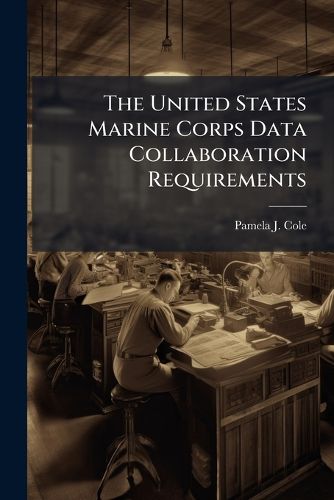Readings Newsletter
Become a Readings Member to make your shopping experience even easier.
Sign in or sign up for free!
You’re not far away from qualifying for FREE standard shipping within Australia
You’ve qualified for FREE standard shipping within Australia
The cart is loading…






The goal of this research was to identify those strategies used in the private sector that may help the Marine Corps to better share information across its many different databases. This research is exploratory; it focuses on only one initiative: the IT-21 initiative. The IT-21 initiative dictates The Technology for the United States Navy and Marine Corps, 2000-2035: Becoming a 21st Century Force. The IT-21 initiative states that Navy and Marine Corps information infrastructure will be based largely on commercial systems and services, and the Department of the Navy must ensure that these systems are seamlessly integrated and that information transported over the infrastructure is protected and secure. The Delphi Technique was used to identify strategies, and to assess their value for helping organizations to share information better.
This work has been selected by scholars as being culturally important, and is part of the knowledge base of civilization as we know it. This work was reproduced from the original artifact, and remains as true to the original work as possible. Therefore, you will see the original copyright references, library stamps (as most of these works have been housed in our most important libraries around the world), and other notations in the work.
This work is in the public domain in the United States of America, and possibly other nations. Within the United States, you may freely copy and distribute this work, as no entity (individual or corporate) has a copyright on the body of the work.
As a reproduction of a historical artifact, this work may contain missing or blurred pages, poor pictures, errant marks, etc. Scholars believe, and we concur, that this work is important enough to be preserved, reproduced, and made generally available to the public. We appreciate your support of the preservation process, and thank you for being an important part of keeping this knowledge alive and relevant.
$9.00 standard shipping within Australia
FREE standard shipping within Australia for orders over $100.00
Express & International shipping calculated at checkout
The goal of this research was to identify those strategies used in the private sector that may help the Marine Corps to better share information across its many different databases. This research is exploratory; it focuses on only one initiative: the IT-21 initiative. The IT-21 initiative dictates The Technology for the United States Navy and Marine Corps, 2000-2035: Becoming a 21st Century Force. The IT-21 initiative states that Navy and Marine Corps information infrastructure will be based largely on commercial systems and services, and the Department of the Navy must ensure that these systems are seamlessly integrated and that information transported over the infrastructure is protected and secure. The Delphi Technique was used to identify strategies, and to assess their value for helping organizations to share information better.
This work has been selected by scholars as being culturally important, and is part of the knowledge base of civilization as we know it. This work was reproduced from the original artifact, and remains as true to the original work as possible. Therefore, you will see the original copyright references, library stamps (as most of these works have been housed in our most important libraries around the world), and other notations in the work.
This work is in the public domain in the United States of America, and possibly other nations. Within the United States, you may freely copy and distribute this work, as no entity (individual or corporate) has a copyright on the body of the work.
As a reproduction of a historical artifact, this work may contain missing or blurred pages, poor pictures, errant marks, etc. Scholars believe, and we concur, that this work is important enough to be preserved, reproduced, and made generally available to the public. We appreciate your support of the preservation process, and thank you for being an important part of keeping this knowledge alive and relevant.